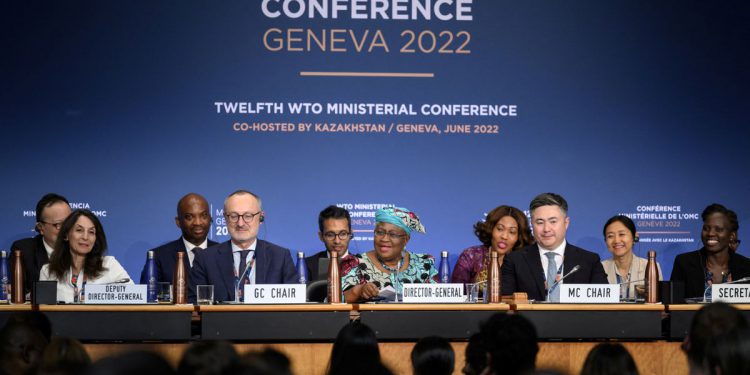Reuters reports that on June 17th in Geneva, the World Trade Organisation’s 164 members approved a series of trade deals including pledges on health/food security and commitments to control overfishing.
This was a result of five days of tough negotiations between 100 trade ministers which tested the capabilities of nations to tackle multilateral trade deals while the Ukraine war heightens geopolitical tensions.
The Director-General Ngozi Okonjo-Iweala told the delegates that: “The package of agreements you have reached will make a difference in the lives of people around the world. The outcomes demonstrate that the WTO is, in fact, capable of responding to emergencies of our time”.
Agreements were reached despite India’s paralysing demands which they saw as the protection of poor farmers, fishermen and developing countries.
Importantly, these trade negotiations tackled the systemic issue of the depletion of global fish stocks. The trade deal aimed to ban subsides for illegal, unreported and unregulated fishing practices. The hope is to curb the key drivers behind over-fishing. This agreement is the only second multilateral agreement in the WTO’s 27-year history.
Generally, some observers were somewhat supportive of the deals as a comeback for the WTO following Donald Trump’s presidency, which had attempted to cripple the organisations trade negotiations.























